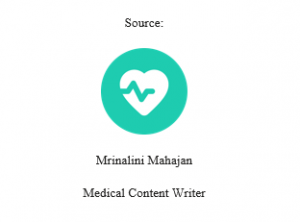The healthcare industry is witnessing a rapid transformation with the advent of technology-driven innovations. HealthTech and MedTech may sound similar, but they represent distinct sectors that are revolutionizing healthcare in their unique ways. Let us explore the differences and synergies between HealthTech and MedTech and how they are collectively shaping the future of healthcare.
Understanding HealthTech and MedTech:
HealthTech, refers to the implementation of technology to enhance healthcare delivery, improve patient outcomes, and optimize the overall healthcare system. It encompasses a broad spectrum of applications, including telemedicine, wearable devices, mobile health apps, health analytics, and more. HealthTech focuses on empowering individuals to take charge of their health, promoting preventive care, and enabling personalized healthcare experiences.
On the other hand, MedTech, or Medical Technology, pertains to the development and utilization of medical devices, equipment, and solutions specifically designed for diagnosis, treatment, and monitoring of medical conditions. MedTech encompasses a wide range of innovations such as surgical robots, imaging systems, prosthetics, medical implants, and diagnostic tools. It primarily targets healthcare providers, aiming to enhance their capabilities, improve clinical decision-making, and streamline medical procedures.
Distinguishing Factors:
While both HealthTech and MedTech contribute to healthcare innovation, there are notable distinctions between the two:
Focus and Purpose: HealthTech emphasis on empowering individuals, promoting wellness, and optimizing the healthcare experience outside traditional medical settings. It emphasises on preventive care, health monitoring, and lifestyle management. MedTech is more provider-centric, focusing on enabling accurate diagnoses, precise treatments, and efficient patient care within clinical settings.
User Engagement: HealthTech engages patients directly, encouraging active participation in their own health management. It leverages user-friendly interfaces, wearable devices, and mobile apps to facilitate real-time health tracking, remote consultations, medication reminders, and personalized health recommendations. MedTech, while involving patients indirectly, primarily targets healthcare professionals, equipping them with advanced tools and technologies to deliver optimal care.
Scope and Implementation: HealthTech operates across a broad spectrum of healthcare domains, including preventive care, chronic disease management, mental health, and wellness. Its implementation is not limited to medical facilities and can be integrated seamlessly into individuals’ daily lives. Conversely, MedTech focuses on specialized medical equipment and solutions designed for clinical use, requiring adherence to rigorous regulatory standards and often implemented within healthcare institutions.
Synergies and Collaboration: HealthTech and MedTech are not mutually exclusive but rather complementary sectors that can work synergistically to advance healthcare. Their collaboration holds huge potential in improving patient outcomes, streamlining healthcare processes, and reducing costs. For instance, HealthTech solutions can provide valuable data and insights to MedTech devices, enabling personalized treatment plans and more accurate diagnoses. Conversely, MedTech innovations can enhance the capabilities of HealthTech platforms, integrating real-time data from medical devices for better health monitoring and analysis.
HealthTech and MedTech are integral components of the ongoing digital revolution in healthcare. While HealthTech focuses on empowering individuals, promoting preventive care, and enabling personalized health experiences, MedTech aims to enhance clinical decision-making and streamline medical procedures.
Understanding the distinctions between the two sectors and harnessing their synergies can lead to breakthrough innovations, improved patient outcomes, and a more efficient and patient-centric healthcare ecosystem. By embracing both HealthTech and MedTech, we can bridge the gap between technology and medicine, paving the way for a healthier future.

